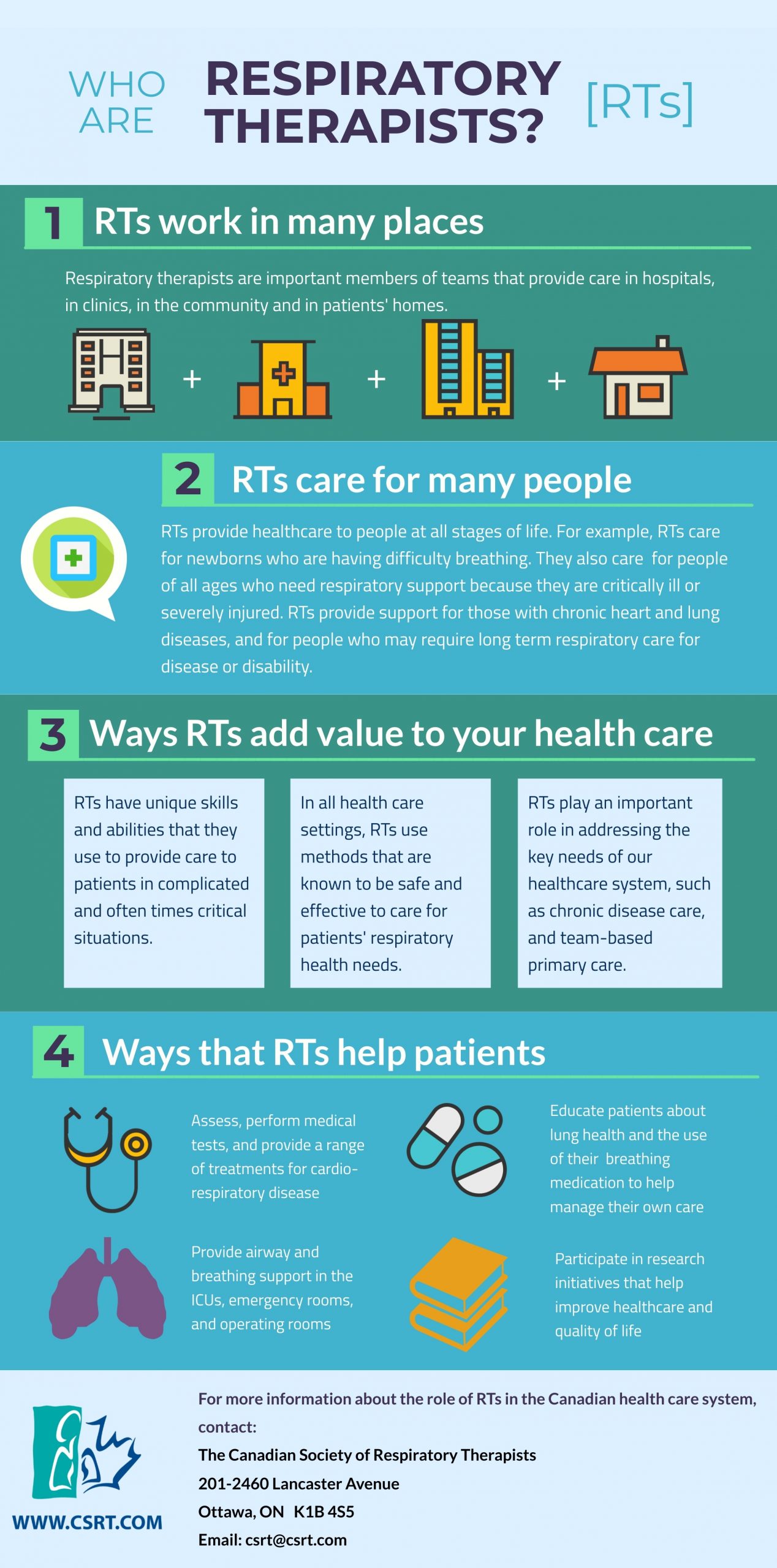About Respiratory Therapists
Respiratory therapists are specialists in cardiorespiratory care and are essential to the provision of care across our healthcare systems. There are more than 12,000 registered respiratory therapists (RRTs) working on the frontlines, providing essential care in Canada.
Respiratory therapists provide life-saving treatments including oxygen therapy, airway management and mechanical ventilation for patients who are no longer able to breathe for themselves. The Canadian healthcare system relies on effective integrated healthcare teams. Respiratory therapists are integral members of many of these teams, such as anesthesia care teams, critical care teams, and primary care teams.
Respiratory Therapists Breathe Life Into Healthcare

Respiratory Therapists Breathe Life Into Healthcare (snapshot)

RRT: The Registered Respiratory Therapist Credential
The CSRT’s registered respiratory therapist (RRT) credential is a demonstration that an individual has achieved and adheres to the national competency standards for the practice of respiratory therapy in Canada, in accordance with the National Competency Framework for Respiratory Therapists
The CSRT is the only body who may confer the RRT credential in Canadian jurisdictions where the profession is not regulated (e.g. BC, NT, NU, and YT). RRTs working in these jurisdictions must maintain registration with the CSRT to maintain the RRT credential.
In Canadian jurisdictions where the profession is regulated (AB, SK, MB, ON, QC, NB, NS, NL, and PEI), the RRT credential is conferred by regulatory colleges. These are organizations who have been given the legislative authority by provinces or territories for regulating the practice of respiratory therapy in that jurisdiction. More information on Canada’s RT Regulatory colleges is available here.
How to become a respiratory therapist?
Generally, in Canada, becoming a respiratory therapist involves graduating from an education program accredited by Accreditation Canada and successfully completing a national certification examination administered by Health Professionals Testing Canada (HPTC). Respiratory therapy programs based in Quebec are approved provincially and graduates must meet provincial requirements to work in that province. Graduates of accredited respiratory therapy programs are eligible to write the HPTC National Certification Examination. Successful candidates may earn the Registered Respiratory Therapist (RRT) credential.
Respiratory therapists graduate from a three- or four-year professional education program offered by a community colleges or university. These programs include a combination of classroom-based activities, hands-on learning, and a clinical component in respiratory therapy practice settings to prepare students for entry-to-practice . Typically, three-year programs culminate in a diploma or advanced diploma, and four-year programs culminate in a degree.



